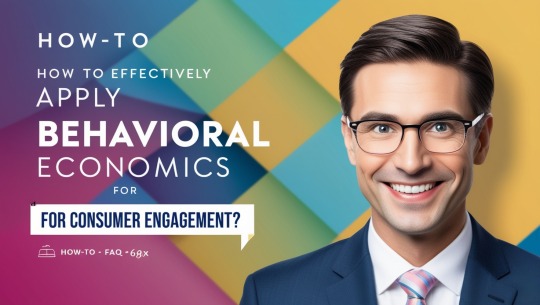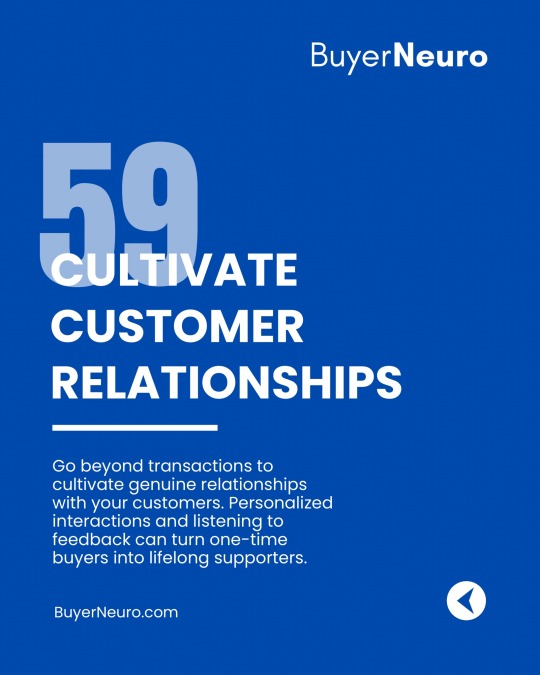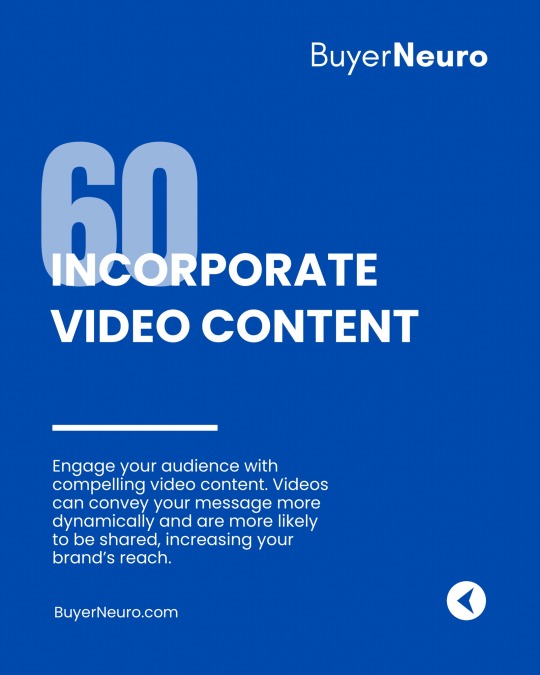#consumer psychology
Explore tagged Tumblr posts
Text
Pet Rocks: From 1970s Fad to Interplanetary Travelers
Can you dig it? It’s been half a century since advertising genius (or madman?) Gary Dahl pulled off one of the greatest rock ‘n’ roll swindles—except there was no music, just rocks. And not the Rolling Stones kind, either. This guy put a rock in a box, called it a Pet Rock, and laughed all the way to the bank. No, not the Bank of Bedrock—this was cold, hard cash, baby. The Rise of the Pet Rock…
#1970s fads#advertising success stories#best-selling fads#collectible toys#consumer psychology#Dwayne The Rock Johnson#Gary Dahl#interplanetary travel#marketing genius#Mars exploration#NASA#nostalgic trends#novelty toys#Perseverance rover#Pet Rock#Pet Rock history#pop culture history#rock collection#viral marketing#weird inventions
2 notes
·
View notes
Text
Walter Cronkite: A Masterclass in Trust & Recognition
Before the age of social media and 24/7 news cycles, there was Walter Cronkite—a man who needed just 30 minutes a day to become the most trusted voice in America.
Unlike today’s media landscape, filled with clickbait and constant updates, Cronkite built his reputation on credibility, honesty, and depth. His words carried weight because he never sensationalized—he simply delivered the facts.
📌 Consistency Made Him Recognizable – His voice and journalistic style were unmistakable. 📌 Authenticity Built Trust – He focused on truth, not hype. 📌 Quality Over Quantity – He didn’t need an all-day news cycle to create impact.
Brands and marketers today can learn from this. In a world of constant noise, trust and authenticity remain the ultimate differentiators. It’s not about saying more—it’s about saying what truly matters.
So, in today’s digital space, who’s your Cronkite? 🎤
2 notes
·
View notes
Text
The Tyranny of Too Many Choices: Why My Brain Hates the Cereal Aisle
Ever felt overwhelmed by too many choices? Discover the paradox of choice, why your brain hates the cereal aisle, and how embracing limitations can actually lead to more happiness.
Raise your hand if you’ve ever stood in the cereal aisle, paralyzed by indecision, as your eyes darted between Froot Loops, Lucky Charms, and that granola stuff your mom used to buy. (Don’t worry, your secret’s safe with me.) Well, my friend, you’ve experienced the paradox of choice firsthand. It’s the modern-day affliction where more options somehow equal more misery. It’s like this: your brain…

View On WordPress
#cats#cereal aisle#choices#cognitive overload#consumer psychology#consumerism#decision fatigue#decision paralysis#family#FOMO#funny#Gift#happiness#home#humor#indecision#modern life#overwhelmed#paradox of choice#psychology#Puns#satire#streaming services#too many options#well-being
2 notes
·
View notes
Text

Brand Perception: At BuyerNeuro, we understand the power of brand perception. We help brands craft a positive and emotionally resonant image through strategic marketing efforts. #BrandPerception #EmotionalBranding #BuyerNeuro
2 notes
·
View notes
Text
The Sound of Vanity & Greed:
youtube
"I won't let anyone get in my way I want beautiful things I live just to get what I want And I'll use you to get it..."
Natalie Taylor, I Want It All.
#Fast Fashion#Greed#Overconsumption#Consumer psychology#The True Cost#Haunting Music#Beautiful#Ugly truth
1 note
·
View note
Text

0 notes
Text
Conversion Rate Magic: How to Double Your Leads Without Increasing Traffic
In the world of digital marketing, increasing traffic is often seen as the holy grail, but what if I told you that the real magic lies in doubling your leads without even boosting your site’s traffic? This comprehensive guide will walk you through proven strategies to enhance your conversion rates, turning your existing traffic into a goldmine of leads. Understanding Conversion Rates What is a…
#a/b testing#Chatbots and AI in Marketing#Consumer Psychology#conversion rate optimization#Digital Marketing Strategies#Email Marketing Techniques#Lead Generation#Persuasive Copywriting#User Experience Design#Website Optimization
0 notes
Text
Decoding the Consumer Mind: An In depth Look at Consumer Psychology
What motivates consumers is not solely the interest of psychologists; it is a must-know for marketers and business leaders alike. But then, it’s actually important for the average person, since most of us are interested in what drives buying behavior. Consumer psychology concerns discovering why people buy what they buy. This is a valuable part of the subject taught in programs such as Sikkim…
#brand perception#brand strategy#buyer behavior#cognitive biases#consumer analysis#Consumer Behavior#consumer decision-making#Consumer Insights#consumer mindset#Consumer Psychology#emotional triggers#marketing psychology#Marketing Strategy#Marketing Trends#purchasing behavior
0 notes
Text
How to Effectively Apply Behavioral Economics for Consumer Engagement?

I never thought behavioral economics would revolutionize my marketing strategy.
But here I am, telling you how it changed everything.
It all started when our company's engagement rates plummeted. We were losing customers faster than we could acquire them.
That's when I stumbled upon behavioral economics.
I began by implementing subtle changes. We reframed our pricing strategy using the decoy effect.
Suddenly, our premium package became more attractive. Sales increased by 15% in the first month.
Next, we tapped into loss aversion. Our email campaigns highlighted what customers might miss out on. Open rates soared from 22% to 37%.
But the real game-changer was social proof. We showcased user testimonials prominently on our website. Conversion rates jumped by 28%.
As we delved deeper, we encountered challenges. Some team members worried about ethical implications.
Were we manipulating consumers?
We addressed this by prioritizing transparency.
Every nudge we implemented was designed to benefit both the customer and our business.
This approach not only eased internal concerns but also built trust with our audience.
The results spoke for themselves. Overall engagement increased by 45% within six months. Customer retention improved by 30%.
But it wasn't just about numbers. We were creating meaningful connections. Customers felt understood and valued.
Looking back, I realize behavioral economics isn't about tricks or gimmicks. It's about understanding human behavior and using that knowledge to create win-win situations.
So, how can you improve your consumer engagement using behavioral economics?
Start by observing your customers' behaviors. What motivates them? What holds them back?
Use these insights to craft strategies that resonate.
Remember, the goal is to guide, not manipulate.
How are you applying behavioral economics in your business?
Get Tips, Suggestions, & Workarounds, in 2-3 mins, on How to Effectively Apply Behavioral Economics for Consumer Engagement?
#behavioral economics#consumer psychology#marketing strategy#customer engagement#neuromarketing#decision making#consumer behavior#nudge theory#choice architecture#framing effect#loss aversion#social proof#anchoring#scarcity principle#cognitive biases#consumer insights#behavioral science#customer retention#conversion optimization#user experience#A/B testing#persuasion techniques#emotional marketing#brand loyalty#customer journey#pricing strategies#consumer decision making#marketing psychology#behavioral marketing#SubhamDas
0 notes
Text
Wired Minds: Exploring the Neuroscience of Brand Influence
Every day, brands like Apple and Nike manage to stand out in a sea of advertisements, engaging not just our senses but our brains at a deeper, cognitive level. This isn’t magic—it’s science, specifically neuromarketing. Neuromarketing merges neuroscience with marketing to understand how consumers’ brains react to marketing stimuli. This approach helps brands like Apple and Nike design campaigns…

View On WordPress
0 notes
Text
The Role of Emotions in Online Shopping Decisions
In the ever-evolving landscape of online shopping, understanding the role of emotions in consumer decisions is crucial for any brand looking to thrive. It's not just about offering the best deal anymore; it's about connecting with your customers on a deeper, more emotional level. If you're not tapping into the emotional journey of your online shoppers, you're missing out on a key ingredient in the recipe for e-commerce success.
Emotions drive decisions. It's a fact that's as true in life as it is in online shopping. From the excitement of finding a new product to the joy of a hassle-free return policy, every touchpoint in the online shopping experience can evoke emotions that heavily influence buying decisions. In the UK, where e-commerce is a way of life for many, understanding these emotional drivers is not just beneficial; it's essential.
But how do brands go about harnessing these emotions? It starts with creating an online experience that's not only intuitive but emotionally engaging. This could be through personalised recommendations that make the shopper feel understood, engaging content that resonates on a personal level, or customer service that genuinely makes them feel valued. By aligning your online presence with the emotional journey of your customers, you create a connection that goes beyond the transactional.

However, the clock is ticking. The online marketplace is more competitive than ever, with new brands popping up left, right, and centre. Those that fail to recognise the importance of emotions in online shopping decisions will find themselves outpaced by brands that do. It's not just about the urgency of now; it's about setting the stage for long-term loyalty and connection. Brands that succeed in making their customers feel good about their purchases are the ones that will enjoy lasting success.
In conclusion, the role of emotions in online shopping decisions cannot be overstated. It's a powerful tool that, when used correctly, can transform the online shopping experience from purely transactional to deeply personal. As we move forward, the brands that will dominate are those that understand and cater to the emotional journey of their customers. So, the question is, are you ready to tap into the emotional heartbeat of your online shoppers? If not, now's the time to start.
#emotional marketing#online shopping behaviour#consumer psychology#emotional engagement#e-commerce strategies#customer experience#personalised online shopping
0 notes
Text
The Role of Emotions in Online Shopping Decisions
In the digital age, emotions play a crucial role in online shopping decisions. For business owners, understanding this emotional landscape becomes a vital part of crafting an e-commerce strategy that resonates with consumers. Emotions influence not just what we buy but how we feel about our purchases. Happiness, excitement, trust, and even fear of missing out (FOMO) drive consumers towards making decisions quicker than logical reasoning ever could. By engaging these emotions, businesses can create a powerful connection with their customers, encouraging not just one-time sales but fostering loyalty and repeat business.
Personalization is key to tapping into consumer emotions. Tailored product recommendations, customized email marketing campaigns, and engaging content can make shoppers feel understood and valued. This personalized approach boosts emotional engagement, making customers more likely to purchase. When business owners leverage data and analytics to anticipate and meet their customers' needs and preferences, they not only increase sales but also enhance customer satisfaction and retention. The power of feeling seen and appreciated cannot be underestimated in its ability to influence buying behavior.
Trust forms the foundation of any successful online shopping experience. Consumers need to feel confident in the quality of their purchases, the security of their transactions, and the reliability of customer service. Businesses that establish a trustworthy online presence through clear communication, transparent policies, and authentic customer reviews foster a sense of safety and reliability. This emotional security encourages consumers to make more frequent and larger purchases, knowing their expectations will be met or exceeded.
The excitement and anticipation of a good deal or a new product release can also spur online shopping decisions. Flash sales, limited-time offers, and exclusive product launches create a buzz that consumers are eager to be part of. This urgency and exclusivity tap into the emotional thrill of obtaining value or accessing something unique, driving immediate action. For e-commerce businesses, understanding and harnessing these emotions can lead to significant spikes in traffic and conversions, illustrating the direct impact of emotions on sales.
In conclusion, emotions are a powerful driver behind online shopping decisions, significantly influencing consumer behavior. Business owners who understand and strategically engage with these emotions can enhance their e-commerce platforms, creating more compelling and satisfying shopping experiences. By focusing on personalization, building trust, and fostering excitement and anticipation, businesses can not only boost sales but also develop a loyal customer base. The role of emotions in online shopping is undeniable, and leveraging them effectively is key to success in the competitive digital marketplace.
This article sheds light on the pivotal role of emotions in online shopping decisions, highlighting how personalization, trust, excitement, and anticipation significantly affect consumer behavior. For business owners, the insights provided emphasize the importance of emotionally intelligent strategies to enhance e-commerce platforms and customer engagement. Addressing these semantic entities, the article offers a persuasive narrative on the power of emotions in driving online shopping decisions, underlining the necessity for businesses to strategically engage with their customers' emotional states to achieve success in the digital marketplace.
#emotional buying behavior#online shopping decisions#consumer psychology#e-commerce marketing#emotional engagement strategies#customer experience optimization
0 notes
Text
Pet peeve of the day
Why, oh why, are Before and After shots ALWAYS done with different lighting. The Before is poor and dark and the After is bright and flattering. Of course people are going to look better without changing a thing.
And, oh yes. Makeup and hair, too. But only on the After shot.
How stupid do these people think we are?
0 notes
Text


2 notes
·
View notes
Text
Decoding Consumer Behavior: Mastering the American Purchasing Landscape
Gain a comprehensive understanding of American consumer behavior with our in-depth exploration. Unlock insights into purchasing trends, preferences, and dynamics, empowering your business to navigate and thrive in the diverse American market.
#American Consumer Behavior#Purchasing Trends#Consumer Preferences#Retail Dynamics#Shopping Behavior#Market Insights#American Purchasing Patterns#Consumer Decision-Making#Retail Trends#Consumer Psychology#Shopping Habits#Market Research#Consumer Demands#Retail Strategies#Buyer Behavior#Purchasing Landscape#Consumer Insights#Market Dynamics#Shopping Preferences#Retail Market Analysis
0 notes
Text
Mobile Marketing for Local Shops: Tapping Into On-The-Go Audiences
Marketing can be a juggling act for me, but I prioritize strategies that boost local engagement. Today, let's dive into the world of mobile marketing and how it benefits local businesses like mine.
The Psychology of Mobile Marketing
Mobile marketing taps into the psychology of convenience and instant gratification. In today's fast-paced world, people rely on their smartphones for everything, from finding nearby restaurants to shopping for clothes. Understanding this psychology is key for connecting with on-the-go audiences.
The concept of mobile marketing aligns with several well-known psychological principles:
Fulfilling Immediate Needs: Mobile marketing caters to consumers' need for immediate solutions. When someone searches for a product or service on their smartphone, they're likely ready to make a purchase or take action.
Visual Engagement: Visual content, such as eye-catching graphics and videos, captures mobile users' attention quickly. Visual appeal is a crucial psychological factor in mobile marketing.
Location-Based Targeting: Geolocation-based marketing taps into the psychological desire for relevant and timely information. When users receive location-specific offers, it feels personalized and valuable.

Real-World Impact of Mobile Marketing
Now, let's explore the real-world impact of mobile marketing for local businesses through a practical example.
Imagine a potential customer strolling through town, searching for a unique gift. Thanks to mobile marketing, they discover your boutique through a geolocation-based ad on their smartphone. This ad showcases your latest collection, complete with vivid images and a limited-time discount. Intrigued, the potential customer decides to visit your store.
Upon arriving, they find the exact items they saw in the mobile ad, along with a friendly and knowledgeable staff. The positive experience not only leads to a purchase but also prompts the customer to sign up for your store's mobile loyalty program.
In this scenario, mobile marketing played a pivotal role in driving foot traffic and revenue to your local shop. It seamlessly connected the digital world with the physical store, showcasing the power of mobile strategies for local businesses.
Conclusion
As we wrap up our exploration of mobile marketing for local shops, remember that it's not just about embracing technology; it's about connecting with your community. Mobile marketing is a tool that bridges the gap between your physical store and the digital world.
So, let's continue prioritizing strategies that boost local engagement. By embracing mobile marketing, local businesses like ours can thrive in an increasingly digital landscape.
[FAQs]
Q1: How can I measure the success of my mobile marketing efforts?
A1: Use analytics tools to track website traffic, conversion rates, and customer engagement. Monitor key performance indicators (KPIs) to assess your campaigns' effectiveness.
Q2: Is mobile marketing suitable for all types of local businesses?
A2: Yes, mobile marketing can benefit various local businesses, including restaurants, boutiques, salons, and service providers. It offers a cost-effective way to reach a local audience.
1 note
·
View note